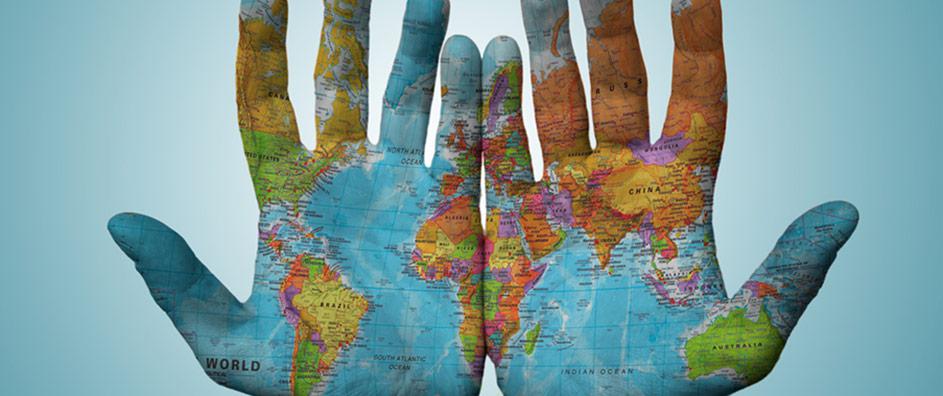In a world increasingly polarized by national identities, one might ponder: Is our allegiance to our nation an elevation of spirit, or does it veer dangerously close to idolatry? This query prompts an examination of Bahá’í teachings surrounding nationalism, illuminating the complexities and potential pitfalls of fervent national devotion.
Nationalism, at its core, often cultivates a sense of belonging and cultural pride, entwining individuals with a shared history and a collective destiny. However, such fervor can easily devolve into a form of worship that eclipses higher spiritual principles. The Bahá’í Faith, with its emphasis on the oneness of humanity, offers a clarion call for a transcendence of narrow nationalistic inclinations in favor of global unity.
To begin, it is crucial to delineate the distinguishing features of nationalism from a Bahá’í perspective. Nationalism, in its most benign form, celebrates cultural heritage and the achievements of a people. Yet, when taken to extremes, it engenders exclusivity, intolerance, and a propensity for conflict. Bahá’í teachings advocate for the acknowledgment of cultural diversity while simultaneously urging individuals to transcend their nationalistic impulses in favor of a more inclusive worldview.
Furthermore, the dichotomy of nationalism bears significant implications for interpersonal relationships and societal structures. Nationalist fervor can lead to the dehumanization of ‘the other,’ creating rigid barriers that obstruct genuine understanding and cooperative engagement. Conversely, the Bahá’í Faith promotes the notion that all individuals, irrespective of their nationality, share a singular origin and common purpose—namely, the advancement of humanity as a whole.
The challenge presents itself in the form of dual allegiance. One must grapple with the notion of being a citizen of a particular state while embracing a broader, more inclusive global identity. How does one maintain their national pride without succumbing to the temptations of extreme nationalism? This is a subtle balancing act that can be fraught with emotional and ethical complications.
The Bahá’í writings elucidate that as humanity evolves, our understanding of identity must also advance. The idea of a globalized citizenry is not merely an aspirational statement; it is a necessary evolution for the survival of humankind. Unity, rather than division, is essential for addressing pressing global challenges such as poverty, climate change, and conflict resolution. In essence, the Bahá’í Faith posits that our loyalty to a nation should be informed by ethical principles that prioritize the welfare of all humanity rather than a select group.
To explore this further, consider historical and contemporary examples that illuminate the dangers of unbridled nationalism. Throughout history, instances of ethnic strife and conflict have often emerged from extreme nationalistic fervor. The tragic consequence is a fracturing of society, where individuals become pawns in a game of power, potentially leading to war and suffering. The Bahá’í perspective underscores that these tribulations can be ameliorated through the conscious choice to prioritize collective humanity over individual national interests.
Moreover, the Bahá’í teachings suggest that fruitful engagement with nationalism can be achieved through an active engagement with social justice. Promoting equity and fostering opportunities for all within a given society allows for the cultivation of a healthy national identity. This approach aligns with the Bahá’í emphasis on the elimination of prejudice and inequality, fostering a harmonious societal structure where all individuals feel valued and included.
Furthermore, Bahá’í principles encourage a re-evaluation of what it means to truly serve one’s country. Instead of viewing service as a mere act of nationalism, it can be envisaged as a commitment to justice, compassion, and the upliftment of all elements within the society. When national engagement is grounded in spiritually informed ethics, the potential for fostering goodwill and a shared sense of purpose becomes boundless.
Ultimately, the challenge poses an opportunity: How can individuals reconcile their national identities with the Bahá’í principle of global unity? This involves a conscientious effort to promote understanding, compassion, and collaboration across borders. Creating channels for dialogue and intercultural exchange fosters a sense of solidarity, emphasizing that despite superficial differences, we are all part of a singular human family.
In conclusion, the Bahá’í teachings invite a deep reflection on the motivations that underpin national identity. While a sense of nationalism can foster solidarity among individuals, it must not eclipse the fundamental truth of our shared humanity. Striving for a balance between national pride and global citizenship is not simply an ethical imperative; it is a necessary evolution of thought in an interconnected world. As individuals grapple with these questions, the teachings of the Bahá’í Faith provide a robust framework that champions unity, compassion, and progress, shining a light on the path toward a more harmonious global society.
